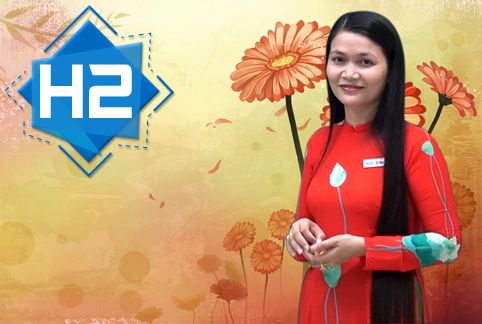READING PASSAGE 1:
Read the passage and answer the following questions.
The Effects of Stress
There is a famous expression in English: "Stop the world, I want to get off!" This expression refers to a feeling of panic, or stress, that makes a person want to stop whatever they are doing, try to relax, and become calm again. 'Stress' means pressure or tension. It is one of the most common causes of health problems in modern life. Too much stress results in physical, emotional, and mental health problems.
There are numerous physical effects of stress. Stress can affect the heart. It can increase the pulse rate, make the heart miss beats, and can cause high blood pressure. Stress can affect the respiratory system. It can lead to asthma. It can cause a person to breathe too fast, resulting in a loss of important carbon dioxide. Stress can affect the stomach. It can cause stomach aches and problems digesting food. These are only a few examples of the wide range of illnesses and symptoms resulting from stress.
Emotions are also easily affected by stress. People suffering from stress often feel anxious. They may have panic attacks. They may feel tired all the time. When people are under stress, they often overreact to little problems. For example, a normally gentle parent under a lot of stress at work may yell at a child for dropping a glass of juice. Stress can make people angry, moody, or nervous.
Long-term stress can lead to a variety of serious mental illnesses. Depression, an extreme feeling of sadness and hopelessness, can be the result of continued and increasing stress. Alcoholism and other addictions often develop as a result of overuse of alcohol or drugs to try to relieve stress. Eating disorders, such as anorexia, are sometimes caused by stress and are often made worse by stress. If stress is allowed to continue, then one's mental health is put at risk.
It is obvious that stress is a serious problem. It attacks the body. It affects the emotions. Untreated, it may eventually result in mental illness. Stress has a great influence on the health and well-being of our bodies, our feelings, and our minds. So, reduce stress: stop the world and rest for a while.
Câu 1:
Which of the following is not a common problem caused by stress?
Câu 2:
According to the essay, which of the following parts of the body does not have physical problems caused by stress?
Câu 3:
Which of the following does NOT show how stress can affect the emotions?
Câu 4:
Choose the best answer to explain how alcoholism is caused by stress.
READING PASSAGE 2:
Read the passage and answer the following questions.
History of popcorn
Popcorn, also known as popping corn, is a special variety of corn (Zea mays everta). Each kernel contains a tiny drop of water. When it is heated, the water expands causing the kernel to explode and flip inside out. Most US popcorn is grown in Nebraska and Indiana, and increasingly in Texas.
Native Americans first discovered popcorn thousands of years ago in Guatemala or Mexico. It was popped in China during the Song Dynasty (960-279) as well as in Sumatra and India long before Columbus reached the Americas. In 1948 and 1950, anthropologist Herbert Dick and botanist Earle Smith discovered ears of popcorn in the Bat Cave of west central New Mexico. The ears measured from smaller than a penny to about 2 inches. They were carbon dated to be about 5,600 years old.
In 1519 when he invaded Mexico, Spanish Conquistador Hernando Cortes first saw popcorn when he met the Aztecs. Popcorn was important to the Aztecs as food, as decoration for ceremonial headdresses and necklaces, and as ornaments on statues of their gods. Around 1612, French explorers around the Great Lakes met Iroquois who used heated sand in a pottery vessel to make popcorn. There is an unproven theory that an Indian named Quadequina brought a deerskin bag of popped corn for the first Thanksgiving feast on October 15, 1621. In 1948 and 1950, anthropologist Herbert Dick and botanist Earle Smith discovered ears of popcorn in the Bat Cave of west central New Mexico. The ears measured from smaller than a penny to about two inches. They were determined to be about 5,600 years old.
Colonial housewives served popcorn with sugar and cream for breakfast. Some colonists used a cylinder of thin sheet-iron that revolved on an axle in front of the fireplace to make popped corn.
In 1885, Charles Cretors of Chicago, Illinois, invented the first popcorn machine. Street vendors were soon pushing steam or gas-powered poppers through fairs, parks, and expositions.
Today much of the popcorn you buy at movies and fairs is popped in machines manufactured by the Cretors family.
In 1914, in Sioux City, Iowa, Cloid H. Smith created America's first branded popcorn (Jolly Time), and for the first time, popcorn was available in grocery stores.
Americans eat more than 17 billion quarts of popcorn a year, an average of 60 quarts per person per year. As the result of an elementary school project, popcorn became the official state snack food of Illinois. January 19 is National Popcorn Day, and October is National Popcorn Month.
Câu 5:
Which question is answered in the first paragraph?
Câu 6:
Popcorn is ....
Câu 7:
Which of the following can be inferred from the passage?
Câu 8:
Which of the following is NOT true?
Câu 9:
Each kernel of popcorn contains __________.
Câu 10:
According to the passage,.....
Câu 11:
What could be a title for the second paragraph?
Câu 12:
What does the word "vendors"
READING PASSAGE 3
According to sociologists, there are several different ways in which a person may become recognized as the leader of a social group in the United States. In the family traditional cultural patterns confer leadership on one or both of the parents. In other cases, such as friendship groups, one or more persons may gradually emerge as leaders, although there is no formal process of selection. In larger groups, leaders are usually chosen formally through election or recruitment.
Although leaders are often thought to be people with unusual personal ability, decades of research have failed to produce consistent evidence that there is any category of "natural leaders" . It seems that there is no set of personal qualities that all leaders have in common; rather, virtually any person may be recognized as a leader if the person has qualities that meet the needs of that particular group.
Furthermore, although it is commonly supposed that social groups have a single leader, research suggests that there are typically two different leadership roles that are held by different individuals. Instrumental leadership is leadership that emphasizes the completion of tasks by a social group. Group members look to instrumental leaders to "get things done." Expressive leadership, on the other hand, is leadership that emphasizes the collective well-beings of a social group's members. Expressive leaders are less concerned with the overall goals of the group than with providing emotional support to group members and attempting to minimize tension and conflict among them . Group members expect expressive leaders to maintain stable relationships within the group and provide support to individual members.
Instrumental leaders are likely to have a rather secondary relationship to other group members. They give others and may discipline group members who inhibit attainment of the group's goals. Expressive leaders cultivate a more personal or primary relationship to others in the group. They offer sympathy when someone experiences difficulties or is subjected to discipline, are quick to lighten a serious moment with humor, and try to resolve issues that threaten to divide the group. As the difference in these two roles suggest, expressive leaders generally receive more personal affection from group members; instrumental leaders, if they are successful in promoting group goals, may enjoy a more distant respect.
Câu 13:
What does the passage mainly discuss?
Câu 14:
The passage mentions all of the following ways by which people can become leaders EXCEPT _______
Câu 15:
In mentioning "natural leaders",
Câu 16:
Which of the following statements about leadership can be inferred from paragraph 2?
Câu 17:
The passage indicates that instrumental leaders generally focus on _________
Câu 18:
The word "collective"
Câu 19:
The word "them"
READING PASSAGE 4
In the early days of the United States, postal charges were paid by the recipient and charges varied with the distance carried. In 1825, the United States Congress permitted local postmasters to give letters to mail carriers for home delivery, but these carriers received no government salary and their entire compensation on what they were paid by the recipients of individual letters.
In 1847 the United States Post Office Department adopted the idea of a postage stamp, which of course simplified the payment for postal service but caused grumbling by those who did not like to prepay. Besides, the stamp covered only delivery to the post office and did not include carrying it to a private address. In Philadelphia, for example, with a population of 150,000, people still had to go to the post office to get their mail. The confusion and congestion of individual citizens looking for their letters was itself enough to discourage use of the mail. It is no wonder that, during the years of these cumbersome arrangements, private letter-carrying and express businesses developed. Although their activities were only semilegal, they thrived, and actually advertised that between Boston and Philadelphia they were a half-day speedier than the government mail. The government postal service lost volume to private competition and was not able to handle efficiently even the business it had.
Finally, in 1863, Congress provided that the mail carriers who delivered the mail from the post offices to private addresses should receive a government salary, and that there should be no extra charge for that delivery. But this delivery service was at first confined to cities, and free home delivery became a mark of urbanism. As late as 1887, a town had to have 10,000 people to be eligible for free home delivery. In 1890, of the 75 million people in the United States. Fewer than 20 million had mail delivered free to their doors. The rest, nearly three-quarters of the population, still received no mail unless they went to their post office.
Câu 20:
What does the passage mainly discuss?
Câu 21:
The word "varied"
Câu 22:
Which of the following was seen as a disadvantage of the postage stamp?
Câu 23:
The word "cumbersome"
Câu 24:
The word "they"
Câu 25:
The private postal services of the nineteenth century claimed that they could do which of the following better than the government?














 Ra mắt HOC247 Kids nền tảng học tập Online #1
Ra mắt HOC247 Kids nền tảng học tập Online #1



